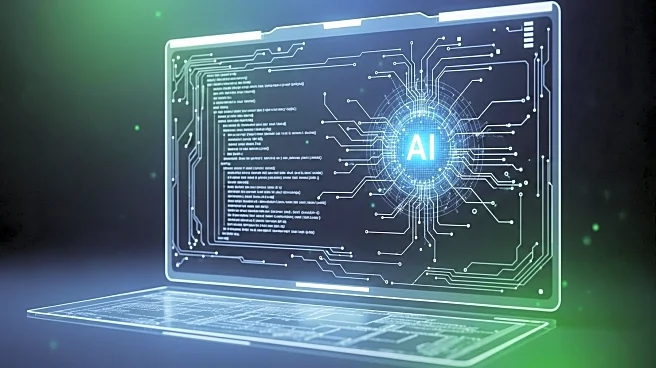What's Happening?
OpenAI has released an upgraded version of its AI coding agent, Codex, now powered by GPT-5. The new model, GPT-5-Codex, is designed to dynamically allocate 'thinking' time, ranging from seconds to several hours, to improve performance on coding tasks. This update aims to make Codex more competitive against other AI coding tools like Claude Code and GitHub Copilot. The model is currently available to ChatGPT Plus, Pro, Business, Edu, and Enterprise users, with plans to extend access to API customers. GPT-5-Codex has shown superior performance on coding benchmarks, particularly in agentic coding and code refactoring tasks.
Why It's Important?
The introduction of GPT-5-Codex represents a significant advancement in AI-driven coding tools, which are increasingly in demand across the tech industry. By enhancing the model's ability to dynamically adjust its processing time, OpenAI is addressing a key challenge in AI coding: the need for flexibility and precision in handling complex tasks. This development could lead to more efficient software development processes, reducing time and costs for businesses. As AI coding tools become more sophisticated, they have the potential to transform how software is developed, tested, and maintained, impacting a wide range of industries reliant on software solutions.
What's Next?
OpenAI's continued innovation in AI coding tools suggests further enhancements and features may be on the horizon. The company may expand the availability of GPT-5-Codex to a broader user base, including API customers, which could increase its adoption across various sectors. As the competition in AI coding tools intensifies, other companies may also introduce new features and improvements to their offerings, driving further advancements in the field. Additionally, the integration of AI coding tools into existing development environments could become more seamless, enhancing their usability and effectiveness.
Beyond the Headlines
The evolution of AI coding tools like GPT-5-Codex raises important considerations about the future of software development and the role of human developers. While these tools can significantly enhance productivity, they also prompt discussions about the potential displacement of jobs and the need for developers to adapt to new technologies. Furthermore, the ethical implications of AI-generated code, such as accountability and transparency, will need to be addressed to ensure responsible use of these technologies.









